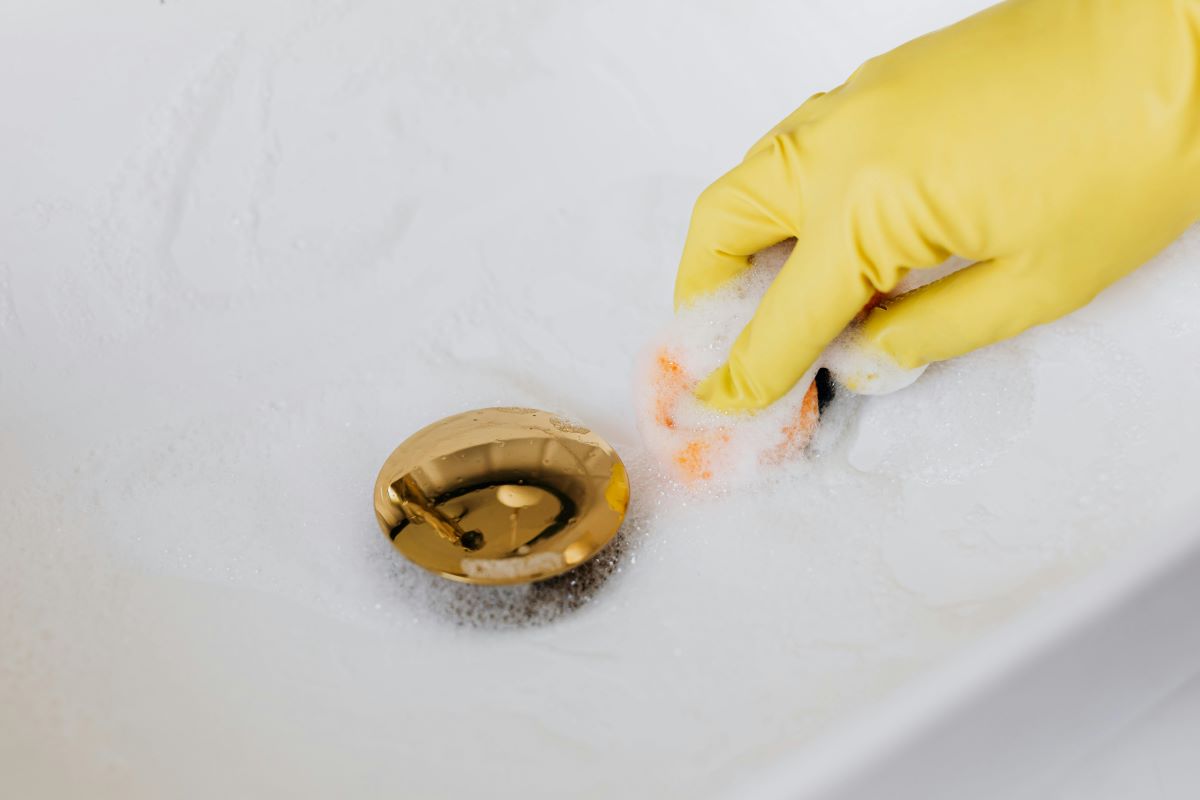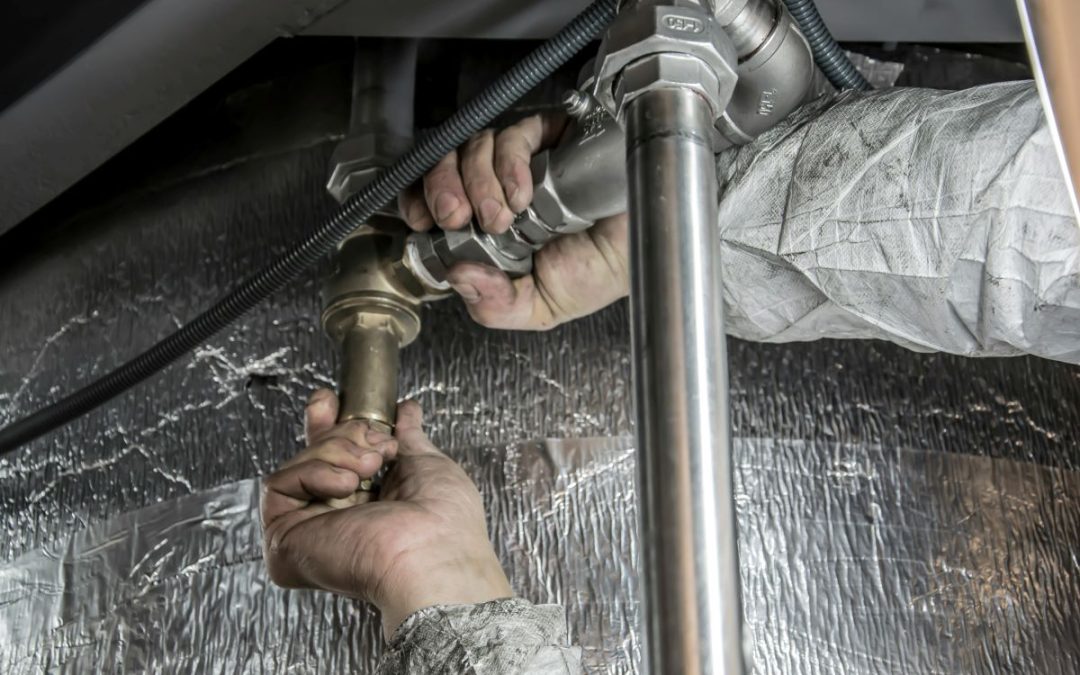Photo via Pexels

Photo via Pexels
Common Plumbing Hazards
A multitude of potential hazards can develop in plumbing systems that can bring harm to you as a homeowner. Typically overlooked, these common plumbing hazards can result in expensive repairs, significant injuries, and considerable chaos in your daily routines. From hot water burns to toxic chemicals, we’ll shed light on these risks so you can foster a safer environment in your home.
Hot Water Burns
Hot water burns often occur when you encounter hot water pipes or fixtures, or from working on hot water heaters. To avoid this peril, it’s best to safeguard yourself by wearing safety glasses and gloves when you come into contact with hot water and using caution when utilizing hot water fixtures or pipes.
Toxic Chemicals
When taking on plumbing tasks, you may have to use chemicals such as adhesives, drain cleaners, and solvents. If these chemicals are inhaled or come in contact with your eyes or skin, the results can be dangerous. It’s crucial to wear protective items like safety glasses and gloves and use a respirator when handling chemicals.
Leaks and Water Damage
Among the biggest catastrophes that can happen to your household are plumbing leaks. Even the slightest leak in a hidden location can gradually compromise your home over time and stimulate the growth of mold and mildew. In contrast, a sudden massive leak can cause flooding in your home–destroying appliances and furniture. It can even make the home unlivable for some time. One way to uncover hidden leaks before they cause a plumbing disaster is to keep an eye out for discolored spots on the ceilings and walls.
Clogged Drains
Clogged drains are a common plumbing hazard for several reasons. A build-up of food particles, hair, and other foreign objects are a few of the principal causes. Even more so, grease that’s poured down the sink can harden within the pipes, bringing on clogs. After some time, these items can impact the flow of water and ultimately result in blockages. Identifying the signs of clogged drains brings you one step closer to remedying these plumbing mishaps efficiently. One way to clear clogged drains is through the use of drain cleaners, but it’s critical to be careful since they can pose health hazards if handled incorrectly.
Sewer Line Backup
A sewer line backup is a distressing situation and is often not a do-it-yourself undertaking. A blockage may not be obvious at first, but there are signs to be aware of to avoid significant damage in your home. When it comes to a backup in the main sewer line, wastewater may be overflowing in sink drains and toilets all at the same time. One sign to look out for before it turns into a major catastrophe is foul-smelling water that bubbles up from the ground or standing water in your grass even though it has not rained.
In a situation like this, action should be taken as soon as possible. Since this is a biohazard, you and others in your home can become ill. It’s best to avoid using plumbing fixtures until a professional plumber has assessed and resolved the issue.
Tips to Avoid Common Plumbing Hazards
With the right knowledge at your fingertips, you can seamlessly avoid these common plumbing hazards. From routine plumbing maintenance to acting quickly when problems arise, we will give you tips to help you prevent these plumbing nightmares below.
Routine Plumbing Maintenance
By doing routine maintenance, you can feasibly prevent common plumbing hazards such as hot water burns, toxic chemicals, and everything in between.
- Flush the water heater: It’s recommended that the water heater is flushed at least once per year to clear away any built-up sediments.
- Be on the lookout for toilet leaks: Periodically check the base of your toilet for any dripping water from the tank or a puddle of water on the floor.
- Clear your drains: Use a combination of baking soda, vinegar, and hot water to clear your drains out.
Act Quickly When Plumbing Issues Happen
Intervening early on is essential to preventing plumbing disasters. When you notice red flags such as water pressure changes or strange noises, it’s best to act quickly to identify the issue. By detecting a problem early, you can determine the problem and take the necessary course before it results in a full-scale crisis.
Contact a Plumbing Professional
Plumbing hazards can pose a substantial risk to yourself and your household. By following safety precautions and performing routine maintenance, you’ll be well on your way to ensuring your plumbing system works as it should. While you may be able to handle minor plumbing issues on your own, larger issues should be handled by a plumbing professional. An experienced plumber has the most appropriate knowledge to assess and fix the issue.
Premier Plumbing has been a trusted source since 1987 and offers robust services. From minor plumbing issues to emergencies, we ensure the job is done right. To inquire about our services, get in touch with us by using our contact form or call 248-363-5864 today.

